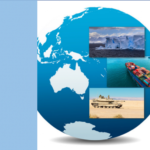Educate against online racism
When Facebook decided to deactivate a racist page which branded Aborigines as alcoholics the Australian Communications and Media Authority investigated. Jamie-Lee Dwyer looks at the controversial issue of online racism.
Thanks to social media sites we now have a viral platform for free speech. However, when individuals use this platform as their method for spreading racist ideals there are no viable means of putting the brakes on the content they decide to upload.
In 2008 former Australian Prime Minister Kevin Rudd gave a long-overdue speech, apologising for past wrongs and mistreatments towards Aboriginal families and communities around Australia.
Then in 2010 Mr Rudd publicly stated he did not believe racism was at work in Australia, but the controversial 2012 Facebook page ‘Aboriginal Memes’ was set to contest his theory.
The page recently made national headlines for its public portrayal of Aboriginal and Torres Strait Islanders as petrol sniffing, welfare collectors.
Employing vicious stereotypes of our Indigenous community to attract visitors, Aboriginal Memes managed to drum up almost 2,700 likes since its creation in early June.
When I paid a visit to this page to see what was causing such contentious reactions, I was disgusted by the tasteless and downright racist posts.
One post read “How do you kill 1000 flies at once? Slap me in the face” accompanied by a photo of an Aboriginal person and the Aboriginal flag.
Another stated “Go sniff some petrol… and go back to the dreamtime.”
Some of these posts had received over 500 likes and incidentally, those showing support for the page were largely high-school students aged 13 to 17, with the creator of the page rumoured to be a 16-year-old boy.
While there has been significant backlash aimed at the degenerative and offensive page, with many posts from other people expressing their outrage and abusing the creator of the page, this activity on Aboriginal Memes has only served to encourage page views.
With the widespread public outrage caused by the page, Facebook was asked by many to take it down, however the site only changed the rating on Aboriginal Memes to ‘controversial humour’. Their excuse being they could not take down the page on the grounds that it would be classed as humour and protected in the US.
After numerous actions were taken to force Facebook to take the page down – including online campaigns, an investigation by the Australian Communications and Media Authority, Federal Communications Minister Stephen Conroy insisting Facebook take the page down, and the Australian Race Discrimination commissioner Helen Szoke becoming involved – they finally relented and removed the page last month.
Shortly after acknowledging the public concern caused by the page, Facebook released a statement that while the social media site doesn’t remove ‘this type’ of content from its site entirely unless it violates its Statement of Rights and Responsibilities, out of respect for local laws, they would restrict access to any content that is in violation of them.
Ms Szoke said the page was in breach of Australia’s anti-discrimination laws and that she had been engaged in constructive dialogue regarding the page with Facebook.
More specifically, she also said the page was in direct violation of section 18C of the 1975 Racial Discrimination Act. Section 18C makes it unlawful for a person to do an act that causes words, sounds, images or writing to be communicated to the public when it’s intended to offend, insult, humiliate or intimidate because of race or ethnic origin.
18C is the section that was referred to in the outcome of Andrew Bolt’s Federal Court case in September last year. Bolt was found to have breached the act when he wrote articles suggesting it was fashionable for "fair-skinned people" of diverse ancestry to choose Aboriginal racial identity for the purposes of political and career clout.
Opposition leader Tony Abbott promised on August 6 that if elected, "the Coalition will repeal section 18C in its current form”. In his speech Abbott cited Bolt as a wronged champion of free speech.
“A man brought down by correctness and excesses of the Racial Discrimination Act.”
I wonder if Mr Abbott is as supportive of Aboriginal Memes as he is of Andrew Bolt?
Another Facebook page titled ‘Aboriginal Memes, Are they racist or not?’ was created earlier this month for people to debate the issue of racism in Australian society.
A rather heated debate caught my eye whilst scanning the page, which started off with the following post:
“Should we ban the Aboriginal meme that everyone is talking about? Should we also have anti-white and anti-asian pages also banned? Currently, I only see the Aboriginal meme being banned. Why do people not speak out against all pages equally? Is only one form considered racism or are all of them?”
Someone responded: “There are many Aboriginal Facebook pages preaching racism against white Australians which are not removed and no one seems to be asking to have them banned. Just seems a bit hypocritical.”
Yet someone else posted: “I find it really funny how ‘white’ people get so angry about ‘reversed racism’, since when have white people ever experienced oppression and marginalisation as a result of other ethnic groups prejudices? Calling indigenous people precious or overly sensitive for being offended at hate fueled, negative and damaging stereotypes but to say "’oh but they are racist to us well’ that in my opinion is just laughable and hypocritical.”
As history reveals, Aboriginal people have endured so much loss and pain in the past at the hands of our ancestors. Two hundred years have come and gone, yet the underlying racism between our cultures still exists; it may be in a different form, but it’s still there.
This form of racism is ripe among those who don’t understand Aboriginal culture. I propose that instead of letting ignorant people turn to racist attitudes we should educate them. Learning about our oldest culture will give new generations of Aussies a deeply rooted respect for them, something that seems to be currently missing in some parts of Australian culture today.
Jamie-Lee Dwyer is a student journalist in her final year of studies at Griffith University on the Gold Coast. Being disabled has taught her that there is always more to people than meets the eye, and as a journalist she want to be able to write stories that inspire others to look more closely at the person in front of them.
Jamie-Lee Dwyer is a 29-year-old freelance writer out of Queensland. She has studied and received a bachelor of journalism with first-class honours from Griffith University. In between doing the odd writing job, she is currently writing a fiction book about overcoming disability.










